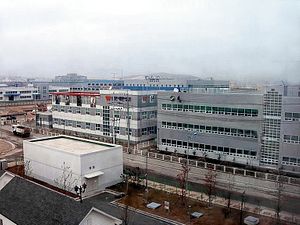The UN Security Council (UNSC) has passed Resolution 2270 condemning North Korea for its January 6 nuclear test and February 7missile launch. The language of the new resolution greatly expands the breadth and depth of previous sanctions resolutions (1695, 1718, 1874,2087, and 2094) on North Korea, but its impact ultimately will depend on the political will of member states, particularly China, to enforce implementation.
The new UN resolution broadens the scope of previous sanctions by targeting both North Korean natural resources sales, which are a source of foreign exchange earnings for the Kim Jong-un regime, and North Korean imports of aviation and rocket fuel. But falling global energy prices and China’s coal industry cuts have probably already had a bigger impact than sanctions on North Korean coal exports, while implementation of an aviation and rocket fuel ban will rely on China’s ability to block smuggling activities across the border with North Korea. The resolution broadens the scope of financial sanctions by imposing a freeze on North Korean assets and by banning new financial channels to and from North Korea.
The resolution also deepens the implementation of previous sanctions by requiring states to inspect all cargo to or from North Korea, by banning charter vessels and airplanes to and from North Korea, and by calling on states to de-register North Korean-owned vessels. However, implementation of inspections depends on the voluntary cooperation of member states, including China, and North Korea is adept at using foreign-flagged vessels and other forms of misdirection to obscure imports of sensitive items.
The new resolution addresses known loopholes in North Korean illicit activities that have been revealed through the work of the UN Panel of Experts on Sanctions toward North Korea established in UNSC Resolution 1718 in 2009. The panel investigates reports from member states regarding North Korean violations of UNSC resolutions and has submitted an annual report to the United Nations on North Korean violations and strategies used to evade sanctions. These reports have provided the basis for the UN resolution to embargo trade in small arms and arms repair and servicing by North Korea and have provided the basis for designations against North Korean entities including diplomats and North Korean controlled companies and vessels operating in violation of past sanctions resolutions.
On paper, the contents of UNSC Resolution 2270 represent a significant increase in pressure on North Korea for its nuclear and missile development efforts, but as with past UN sanctions, the effort is incremental, and the effects will play out over years. Given that achieving simultaneous development of North Korea’s nuclear program and economy undergirds Kim Jong-un’s domestic position, he is unlikely to abandon the nuclear program. As Kim faces a Workers’ Party of Korea congress in May, it is even more unlikely that he will abandon the nuclear program when tougher sanctions are putting his economic improvement efforts at risk.
Yet, the apparent price of China’s acquiescence to a tough resolution appears to have included a clear insistence that the sanctions are designed to induce negotiations, not regime change. China’s active implementation of UN resolutions also appears premised on U.S. and South Korean willingness to downplay pursuit of the Terminal High-Altitude Area Defense (THAAD) system, which is now being officially discussed within the alliance.
Impatience with China’s loose implementation of past UNSC resolutions has induced more active efforts by other states to impose much tougher unilateral sanctions on North Korea. South Korea’s closure of the Kaesong Industrial Complex will cost North Korea at least $100 million per year, while new U.S. legislation puts teeth into efforts to target North Korea’s financial transactions as well as its external trade partners. However, the effective sanctioning of most of North Korea’s trade partners also requires Chinese cooperation since Chinese companies are the primary intermediaries for North Korea’s overseas trade. An omission in the resolution involves North Korean labor exports, which have emerged as a significant stream of North Korean foreign exchange earnings for the export of workers in fields such as construction and logging. But Russia and China, as the primary hosts of such labor, may also be the countries least willing to cooperate in shutting it down.
These measures may indeed hurt North Korea more than might have been anticipated in Pyongyang’s own preparations for its nuclear and missile tests and their aftermath. China abjures regime change as an acceptable outcome of enhanced sanctions and urges a return to negotiations, but there is no apparent intersection between U.S. insistence on denuclearization negotiations and North Korean proposals to negotiate a peace agreement. As a result, both the United States and North Korea seem stuck in their own respective cul de sacs, unable to move forward and unwilling to reverse course. In this test of wills, it will take time for sanctions to achieve their desired effect. Even if they do, it is not clear that any of the concerned parties are truly prepared for the consequences of success.
Scott A. Synder is Senior Fellow for Korea Studies and Director of the Program on U.S.-Korea Policy. This post appears courtesy of CFR.org and Forbes Asia.

































